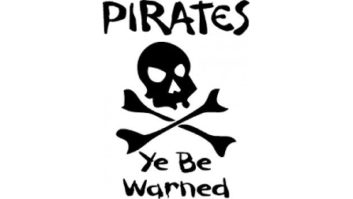While the PIRATE Act waits to be debated by the Senate, the Federal Communications Commission is continuing its sweep for unlicensed operators on the East Coast by sending out Notices of Unlicensed Operation to individuals in New York and Connecticut.
Alleged operators in three different New York boroughs were warned that operation of radio transmitting equipment without a valid license is a violation of federal laws. The ramifications include potential monetary fines, impounding of radio equipment and criminal sanctions.
[Read: Commissioner O’Rielly to Talk Policy at Radio Show]
Just such a notice was sent to an operator in Queens and one in Brooklyn. In July agents from the New York Enforcement Bureau office investigated an alleged unlicensed FM station that was allegedly operating on the frequency 106.5 MHz from a building on 5006 Avenue D in Brooklyn. Agents said Doron Walton was the operator.
That same day agents also sent a letter to 1249 Utica in Queens for allegedly operating a pirate radio station on the same frequency — 106.5 MHz — but in the Brooklyn area. Agents said that they confirmed by direction-finding techniques that those radio signals were emanating from the property owned by that company on 5006 Avenue D in Brooklyn.
Three operators in Connecticut were contacted in the same manner for alleged pirate operations on the same frequency in Bridgeport. William Cotter, Menylik Simmonds and David Glasford were sent a notice on Aug. 29 after agents confirmed that radio signals on frequency 104.7 MHz were allegedly emanating from a residential property on Putnam Street. Agents named Cotter and Simmonds as the alleged operator of the unlicensed radio station and Glasford as the owner of the property.
In each of these cases, agents said they measured the field strength of the signals and found they exceeded the maximum permitted level of 250 μV/m at 3 meters for nonlicensed devices. Each alleged operator has 10 days to respond with any evidence that they have authority to operate. From there, the FCC will take enforcement action to ensure compliance with FCC Rules.
In the meantime, the PIRATE Act waits to be considered by the Senate. In July, the U.S. House of Representatives unanimously passed the PIRATE Act (Preventing Illegal Use of Radio Through Enforcement Act), which proposes to hike the fine for violations to as much as $100,000 per day (up from the current maximum daily penalty of about $19,200) and impose a maximum fine of $2 million.










